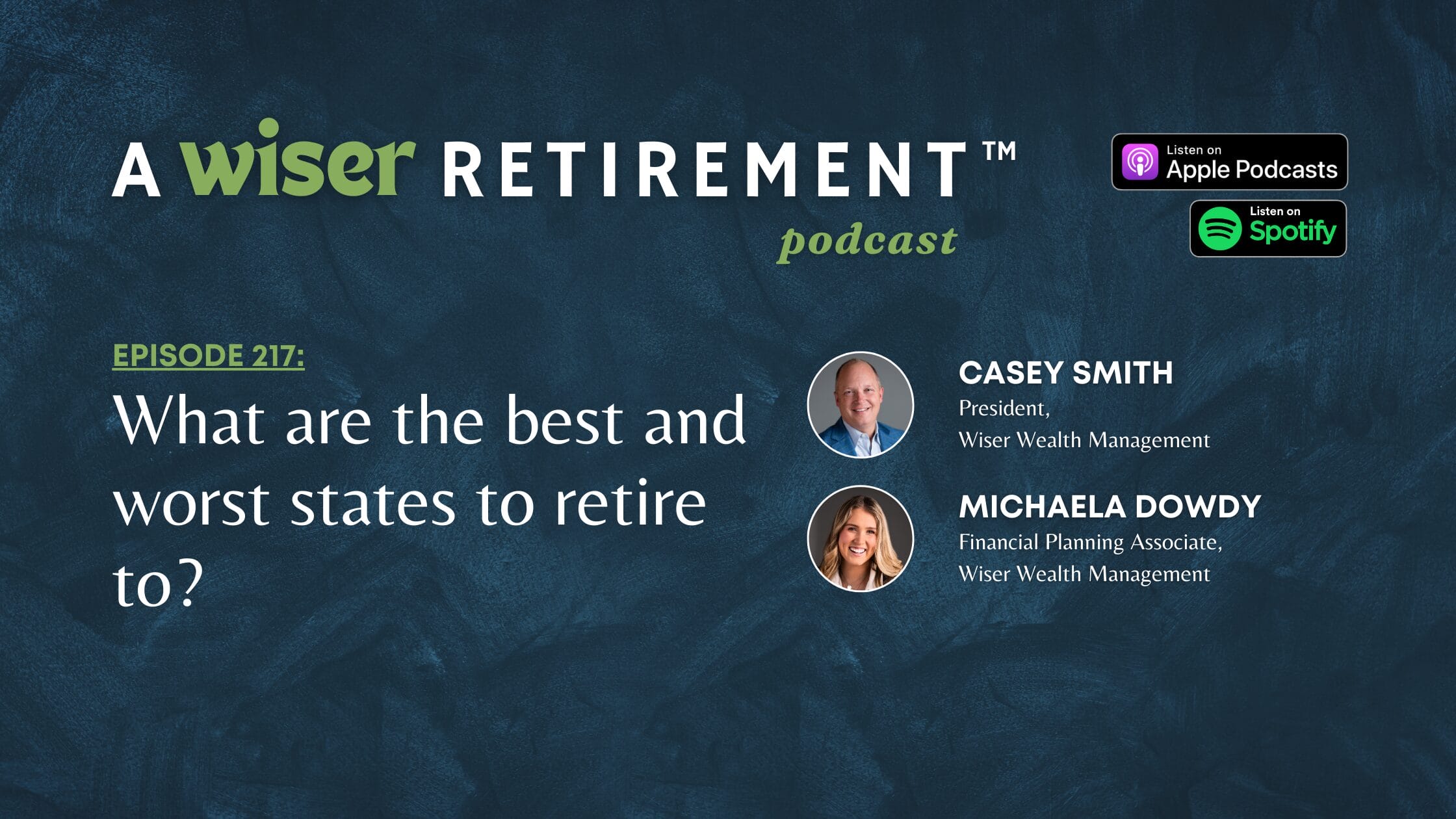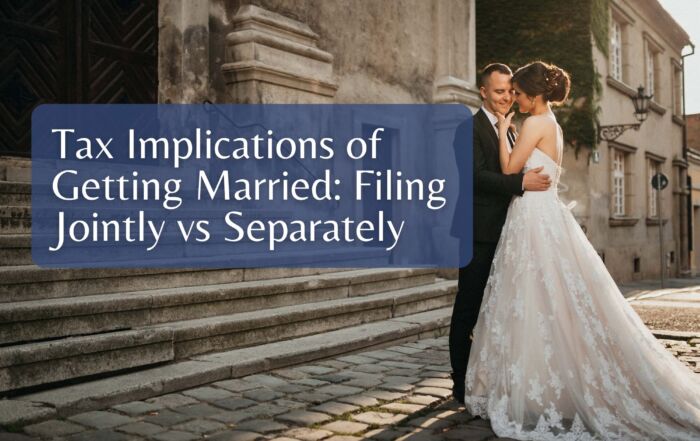
What are the best and worst states to retire to?
Have you thought about moving to a new state when you retire? On this episode of A Wiser Retirement™, Casey Smith is joined by Michaela Dowdy to talk about the 5 best and worst states to retire to. The states on the list might surprise you!
Listen or Watch:
Summary
Bub’s Run
The 4th Annual Bub’s Run is honored to benefit CURE Childhood Cancer, a dynamic organization that provides countless support services to children and families enduring impossibly difficult diagnoses, while also funding targeted research to someday put an end to childhood cancer. The race will be held on Saturday, May 4, 2024 at North Cobb Christian School. Click here to learn more or to register for the race.
Retirement Stats
- More than 338,000 Americans moved to retire in 2023.
- More than 40% of people who plan to move in retirement say lowering living costs is a top consideration.
- For those choosing to retire out of state, Florida was again the No. 1 destination in 2023. Florida attracted around 1 in 10 (11%) of all retirement moves that went to a different state.
- As for the states retirees are leaving, the greatest share of relocating retirees came from California, with 18% of all retirement moves that crossed state lines originating in California. New York contributed a further 11% of retirees seeking a new place to live outside their home state.
5 Best States to Retire to:
- Iowa: Low cost of living, affordable but high-quality healthcare, and low crime.
- Delaware: High-quality healthcare, a light tax burden, and one of the nation’s highest percentages of over-65 residents. One negative is affordability.
- West Virginia: Low cost of living and a light tax burden.
- Missouri: Affordable, but struggles with its quality of healthcare, crime, and is prone to natural disasters.
- Mississippi: Affordable, nice weather and low crime, but struggles with its quality of healthcare and overall well-being.
5 Worst States to Retire to:
- Alaska: Coldest average temperatures of any state, along with the highest violent crime rate and the second-worst internet access.
- New York: High cost of living, doesn’t tax Social Security benefits, but it has a state income tax and also partially taxes retirement account withdrawals and private pensions.
- California: High cost of living, prone to natural disasters, high taxes.
- Washington: High cost of living, high crime rates near large cities like Seatle.
- Massachusetts: Taxes most private pensions, as well as 401(k) and traditional IRA withdrawals. It also taxes investment income, with a 5% state long-term capital gains tax and a 12% tax on short-term capital gains. Has the third-highest home prices out of the 50 states.
(Source)
Things to Consider Before Moving When You Retire:
- Cost of living
- Consider a trial run in a new place to make sure you like it
- Access to healthcare and quality of healthcare
- Taxes
- Climate
- Proximity to family
- Quality of life and activities available
Links:
- Click here to download one of our free guides that covers financial planning topics like retirement, investing, taxes, divorce, and more!
Connect:
- Click here to schedule a consultation with one of our financial advisors.
- Follow us on social media: Twitter, Instagram, Facebook, LinkedIn, and YouTube.
- Learn more about A Wiser Retirement™ podcast and access previous episodes.
Share This Story, Choose Your Platform!
Wiser Wealth Management, Inc (“Wiser Wealth”) is a registered investment adviser with the U.S. Securities and Exchange Commission (SEC). As a registered investment adviser, Wiser Wealth and its employees are subject to various rules, filings, and requirements. You can visit the SEC’s website here to obtain further information on our firm or investment adviser’s registration.
Wiser Wealth’s website provides general information regarding our business along with access to additional investment related information, various financial calculators, and external / third party links. Material presented on this website is believed to be from reliable sources and is meant for informational purposes only. Wiser Wealth does not endorse or accept responsibility for the content of any third-party website and is not affiliated with any third-party website or social media page. Wiser Wealth does not expressly or implicitly adopt or endorse any of the expressions, opinions or content posted by third party websites or on social media pages. While Wiser Wealth uses reasonable efforts to obtain information from sources it believes to be reliable, we make no representation that the information or opinions contained in our publications are accurate, reliable, or complete.
To the extent that you utilize any financial calculators or links in our website, you acknowledge and understand that the information provided to you should not be construed as personal investment advice from Wiser Wealth or any of its investment professionals. Advice provided by Wiser Wealth is given only within the context of our contractual agreement with the client. Wiser Wealth does not offer legal, accounting or tax advice. Consult your own attorney, accountant, and other professionals for these services.





